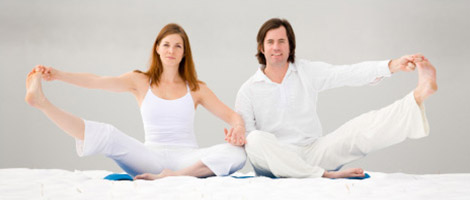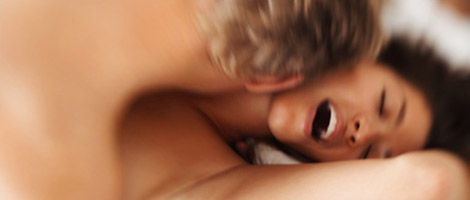
Kegel Exercises
Named after their developer, Dr. Kegel, kegel (KAY-gill) exercises can be used to tone up and strengthen the pubococcygeus muscle (PC muscle). Both genders have this muscle and it supports the following organs in women: urethra, bladder, uterus, vagina, rectum; and in men: urethra, bladder, penis, and rectum. Since the PC muscle is involved in orgasm and ejaculation, these exercises, done on a regular basis, can help correct impotence and urinary problems. Anyone can learn, use, and do Kegel exercise, and the results are always beneficial with enough time and effort.
Always remember to try to have fun while you perform these exercises. Adjust them to your time schedule; learn what you like and, if you can, involve your partner. For the quickest and best results, you should exercise everyday, faithfully. The muscles won't increase in strength overnight, but if you stick to your routine, you should start noticing changes after about three weeks.
Kegel exercises can be done anywhere at anytime as long as you are stationary. Since you never break a sweat or get tired from doing them, you can even do them during a business meeting. Try to find a time and place that is convenient for you, as it will be easier to stay committed if they are a part of your daily schedule.
Finding the PC Muscle:
The PC muscle is the one you flex when you have to pee and are trying not to. Next time you are urinating, try to stop in mid-flow without using your fingers. Please note that Kegel exercises are normally not done while urinating.
Benefits For Women:
- Easier to climax.
- More intense orgasms.
- Elevated sensitivity in the vagina, heightening your sexual satisfaction.
- Lower risk of incontinence (i.e. not being able to hold your pee in).
- Easier childbirth and vaginal muscles will heal faster after birth.
- Improve sex for your male partner by being able to tighten harder around his penis.
Benefits For Men:
- Stronger erection.
- More Intense Orgasms.
- Increased power of ejaculation.
- Lower risk of impotence.
The Basic Exercise
- Contract the PC muscle
- Hold for a 10 count
- Relax the PC muscle
Repeat (as many times as you see fit, try to do at least 10 sets)
Repeat several times each day, every day
Variation 1
- Contract the PC muscle over 5 count from relaxed to as tight as possible
- Relax the PC muscle for 1 count
Variation 2
- Contract the PC muscle over 5 count from relaxed to as tight as possible
- Relax the PC muscle for 1 count
- Contract the PC muscle fast and tight for 1 count
- Relax for 1 count
- Contract the PC muscle fast and tight for 1 count
- Relax for 1 count
- Contract the PC muscle fast and tight for 1 count
- Relax for a 10 count
Variation 3
- Tighten the PC slightly for 5 count
- Tighten the PC slightly more for 5 count
- Tighten the PC completely for 5 count
- Relax the PC slightly for 5 count
- Relax the PC slightly more for 5 count
- Relax the PC completely for 5 count
Proper Exercising:
As with any form of exercise, you should make sure you are doing them properly and isolating the correct muscles to achieve the quickest and best results. While performing Kegel exercises, you should not be flexing your upper leg muscles, buttocks, or abdominal muscles. The only muscle you want to be contracting is your PC muscle. If you feel your anus tensing while exercising, do not worry, it may be difficult at first to tighten the PC muscle and anus separately. After some time, you should be able to contract the PC muscle by itself.
If you get headaches while exercising, this may be a sign that you are tensing your chest muscles or perhaps holding your breath - make sure to breathe deeply and slowly. If you find the exercises tiring or if you get back pain or stomach pain after you exercise, then you are probably, a) trying too hard, and b) using stomach muscles. If you do feel any pains, make an appointment with your physician to look into the matter. Pains usually imply that the techniques aren’t being performed properly; a qualified doctor will be able to correct you, or at the very least find out if there is anything wrong.


